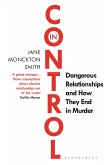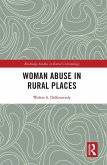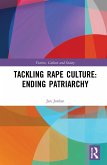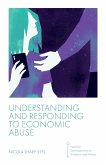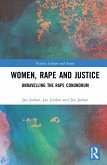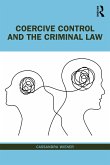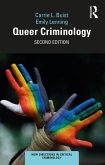Ask any survivor of male violence about her abusive experiences and you will undoubtedly discover that she will call for a definition that includes many harmful nonphysical and nonsexual behaviors like those described in this book. It is a vital resource for anyone seeking a richer social scientific understanding of one of the most significant threats to the health and well-being of women today.
Walter DeKeseredy, Director of the Research Center on Violence and Professor of Sociology, West Virginia University
While many countries have criminalised coercive control in order to combat violence against women, fewer have appraised whether such laws will work as promised. In this thoroughgoing critique, Barlow and Walklate offer a radically new perspective that explores how professional responses to victimized women expose them to further jeopardy in the criminal and family courts, child protection systems and from perpetrators themselves. Essential reading that cautions against quick fixes while advising on what needs to be done to best support those facing multiple forms of discrimination and abuse.
David Gadd, Professor of Criminology, University of Manchester
This book is a clear and lucid explanation of the concept of coercive control, as well as some of the central debates and issues thrown up by the research grappling with intimate partner violence in the law and policy context. It is essential reading for academics and policy makers working on improving our responses to intimate partner violence.
Julia Tolmie, Professor of Law, University of Auckland
Coercive control has become a buzzword in policy discussions about domestic violence in select countries. However, the term is used in ways that bear little resemblance to its empirically derived theoretical roots. Coercive Control contributes a valuable critical discussion of the development of divergent understandings of the concept and debates about the implications of transferring a theory based on research about heterosexual men's violence against women into criminal legal frameworks that are largely gender-blind.
Molly Dragiewicz, Associate Professor, Griffith University
Walter DeKeseredy, Director of the Research Center on Violence and Professor of Sociology, West Virginia University
While many countries have criminalised coercive control in order to combat violence against women, fewer have appraised whether such laws will work as promised. In this thoroughgoing critique, Barlow and Walklate offer a radically new perspective that explores how professional responses to victimized women expose them to further jeopardy in the criminal and family courts, child protection systems and from perpetrators themselves. Essential reading that cautions against quick fixes while advising on what needs to be done to best support those facing multiple forms of discrimination and abuse.
David Gadd, Professor of Criminology, University of Manchester
This book is a clear and lucid explanation of the concept of coercive control, as well as some of the central debates and issues thrown up by the research grappling with intimate partner violence in the law and policy context. It is essential reading for academics and policy makers working on improving our responses to intimate partner violence.
Julia Tolmie, Professor of Law, University of Auckland
Coercive control has become a buzzword in policy discussions about domestic violence in select countries. However, the term is used in ways that bear little resemblance to its empirically derived theoretical roots. Coercive Control contributes a valuable critical discussion of the development of divergent understandings of the concept and debates about the implications of transferring a theory based on research about heterosexual men's violence against women into criminal legal frameworks that are largely gender-blind.
Molly Dragiewicz, Associate Professor, Griffith University


